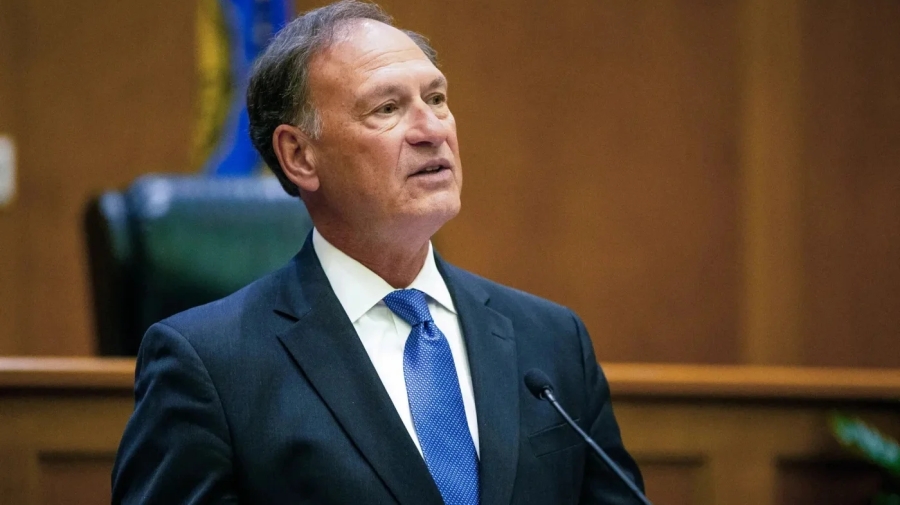Supreme Court Justice Samuel Alito, who authored the court’s majority opinion in the case that overturned Roe v. Wade last year, said he has a “pretty good idea” of the identity of the person who leaked the draft ruling.
Alito said in an interview with two Wall Street Journal opinion writers that the leak of the court’s draft decision in Dobbs v. Jackson Women’s Health Organization last May, more than a month before the opinion was officially announced, “created an atmosphere of suspicion and distrust.”
Chief Justice John Roberts directed the court’s marshal to launch an investigation to try to identify the person responsible for leaking the information to Politico, but the high court said in January it was unable to find the source.
The Supreme Court overturned Roe in a 5-4 ruling in the Dobbs case last June. Roberts voted to uphold a 15-week abortion ban in Mississippi that was being reviewed, but he joined the court’s liberals in opposing the overturning of the precedent.
Alito said in the interview the marshal “did a good job with the resources available,” but the evidence was not sufficient to name a suspect.
“I personally have a pretty good idea who is responsible, but that’s different from the level of proof that is needed to name somebody,” Alito said.
He said he believes the motive for the leak was to prevent the early draft of Dobbs from becoming the court’s ultimate ruling. The vast majority of the final ruling was similar to the text of the leaked draft.
“And that’s how it was used for those six weeks by people on the outside — as part of the campaign to try to intimidate the court,” Alito said.
The court’s ruling in Dobbs, which struck down the federal right to abortion, was followed by more than a dozen states taking action to severely restrict or ban access to the procedure.
Regardless of the identity of the leaker and their motive, the leak effectively froze the votes in the case in the final weeks before the decision was released, according to reporting in the book, “Nine Black Robes.” It prevented the opportunity for compromise in the weeks before the ruling was out, according to the book.

